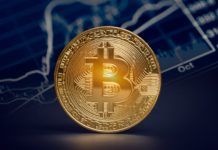With the upcoming political season upon us, we are hearing many campaign promises, proposals, and ideas. Most, if not all, are promising something to someone, at someone else’s (the taxpayer) expense. Phrases like ‘free- whatever’ and ‘income inequality’ are rampant. But I think there is a more basic understanding that people are glossing over: money. What is it, why do we need it, and what system works best for most folks? Let’s dig.
Money is a lot of things. It is represented by currency, coin, and/or numbers on a bank account (physical or electronic). Those that have large amounts of money have options available to them that others lacking those amounts do not. The house they live in, the furnishings in said house, the car(s) they drive, what and where they eat, what they do with their time, all are based upon their ability to pay or borrow money. The entire discipline of Economics is predicated on the scarceness of money—once spent, it cannot be spent again. Each individual satisfies their own unique set of priorities, highest to lowest, by spending their money. The very definition of ‘poor’ are those people with little or no money. Poor folks have almost no options. They have so little resources, they frequently rely on the benevolence of others, through government programs or charity, to survive. Much planning in life is based around money: attend college to increase money earning ability; rent an apartment vs a 30-year mortgage on a house; save for later vs spend now.
As most know, there is no such thing as ‘free’ anything. It is just a matter of who pays. Governmental programs appear to dole out resources for free (to the recipient), but they must first take those resources from someone else via taxes. A popular theme this year is the ‘forgiveness’ of student loan debt. That is quite the misleading term, as the debt does not vanish—it just gets paid by taxpayers, rather than the people who took out the loans. As George Bernard Shaw said, “A government that robs Peter to pay Paul can always depend on the support of Paul.” In this case, Peter is the taxpayer, Paul is the borrower.
‘Income Inequality’ has also been a hot topic lately, as if it is a newfound revelation that there are wealthy folk and not-so-wealthy. The argument is that the difference between the ‘haves’ and the ‘have-nots’ should be somehow narrower, if not non-existent. This implies that the two groups are nearly identical in effort, education, risk-taking, work ethic, performance, luck, etc. That particular equality has NEVER occurred in any society on Earth, except for one with universal destitution (see Venezuela). Money is a wonderful incentive for self-improvement. The pain of doing without something that one wants is a worthwhile goal to alleviate. That same incentive works for innovation, process improvement (working smarter and more efficient). Remove the incentive to excel, you get less excellence. In general, but not always, this adage holds true: work harder, work smarter, get more money.
But the main point: money is a transferable unit of work–not necessarily by the person DOING the work—inheritance, lottery winnings, government hand-outs, and such, are examples of money gained by others’ work. And the money may be the result of work over a long period of time. The overnight success is often achieved over decades of work. Anyhow, money facilitates an exchange method of work for goods or services. You want the good or service more than you want the money obtained from working, and the seller wants the money more than the good or service, so a voluntary purchase is made, benefiting buyer and seller. Money is an agreed upon medium, rather than the constant re-negotiation of barter. As to the system that works best for most folks, it is quite simple to me. Capitalism is a VOLUNTARY exchange of goods and services. With very few exceptions (government created or allowed mini-monopolies), no commerce is compelled. In all other systems, government either controls or compels the price and quantity of goods available to buy, and the value of labor to earn. I am an unabashedly big fan of Capitalism. It isn’t perfect, but it is better than any other system devised by man. In my humble opinion.
Addendum: if money is a transferable unit of work or service performed, what is BORROWED money? Borrowed money is a claim to the borrower’s FUTURE work, service, or products produced. It is nothing more than a promise to pay back (with interest) via work performed at a later date.
In the personal world, such promises can take the form of personal loans, credit cards, student loans, mortgages, etc. That borrowing comes in two flavors: collateralized (against a hard asset that can be repossessed for non-payment) and uncollateralized (credit cards and student loans are chief among these—they have no asset backing at all).
Governmental debt is even a bit more arcane, as the spending is done via our representatives (Congress and the President), supposedly to the ‘benefit’ of taxpayers, and is based purely on the ‘full faith and credit of the US’. Except it isn’t quite that simple. The borrower (taxpayer) has no direct say in the explicit spending and borrowing. As in all third-party financial transactions, nothing is easier than spending other people’s cash. Those borrowing (Congress) feel little or no pain of payback—so there is little to no disincentive to borrow. With Federal National Debt in the $23T range, it will NEVER be paid by this generation’s work. And with the latest ‘stimulus’ funds about to be spent due to COVID-19 economic damage (over $2.2T, with likely more to come), that spending will likely be paid 2, 3, or 4 generations from now, if at all. I won’t comment on the necessity of such spending, but I will note: a single bill in Congress just spent 60% of our YEARLY total tax receipts. Let that sink in.
Welcome!Log into your account























